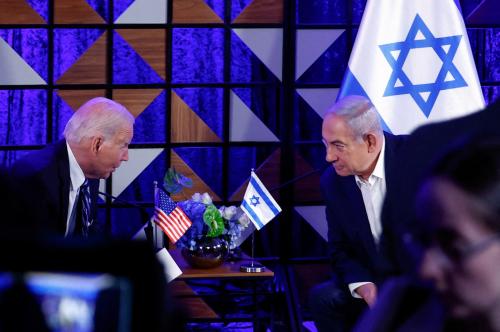The attacks on September 11, 2001 awakened the people of the United States and the world to a profound shift in the international landscape; a shift that was well underway long before that tragic date. At least since the end of the Cold War in the late 1980s, the principal challenge to American security no longer came from established states whose interests were adverse to those of the United States. Instead, the most immediate and serious threats were those associated with the forces of disorder, closely connected to the process that has loosely been called “globalization.”
Globalization has had a deep impact on American security for two important, inter-related reasons. First, the rapidly accelerating movement of people, goods and ideas has contributed to blurring the boundaries between nations and increasing the vulnerability of the American homeland to threats from abroad. Second, the disruptive effects of change and modernization have challenged traditional beliefs, and social and political orders around the world. Globalization has brought with it many dramatic benefits, not only to people in the developed world, but also to those struggling to emerge from poverty and deprivation—as we see in China and India today. But it has also provided new opportunities for dangerous actors, such as terrorists, international criminals and drug traffickers. The technologies of globalization, especially modern communications and the Internet, have been an important factor in heightening these risks, allowing these dangerous actors to cause harm at a distance, to operate across the world in small, easily concealed cells, to communicate surreptitiously, and to spread their ideology of hate globally. And the growing availability of increasingly deadly technologies to non-state actors further exacerbates the danger.
As the 1990s unfolded, senior political leaders in the United States and abroad increasingly came to recognize both the opportunities and threats of this new world. In 1995, on the occasion of the fiftieth anniversary of the signing of the United Nations Charter, President Clinton said:
“Our generation’s enemies are the terrorists and their outlaw nation sponsors—people who kill children or turn them into orphans; people who target innocent people in order to prevent peace? Their reach is increased by technology. Their communication is abetted by global media. Their actions reveal the age-old lack of conscience, scruples and morality which have characterized the forces of destruction throughout history. Today, the threat to our security is not in an enemy silo, but in the briefcase or the car bomb of a terrorist.”
The next year, in March, representatives from 29 countries and institutions (including leaders from the Middle East, Europe, United States, Japan, Russia and Canada) met in Sharm-el-Sheikh, Egypt in an anti-terrorism summit following a wave of suicide bombings in Israel. Later that summer, the G7 in Lyon decided to focus on the problems of global terrorism and crime, including through the creation of the Lyon Group to provide an ongoing mechanism of international coordination.



Commentary
TestimonyIntelligence and National Security Policy
October 14, 2003